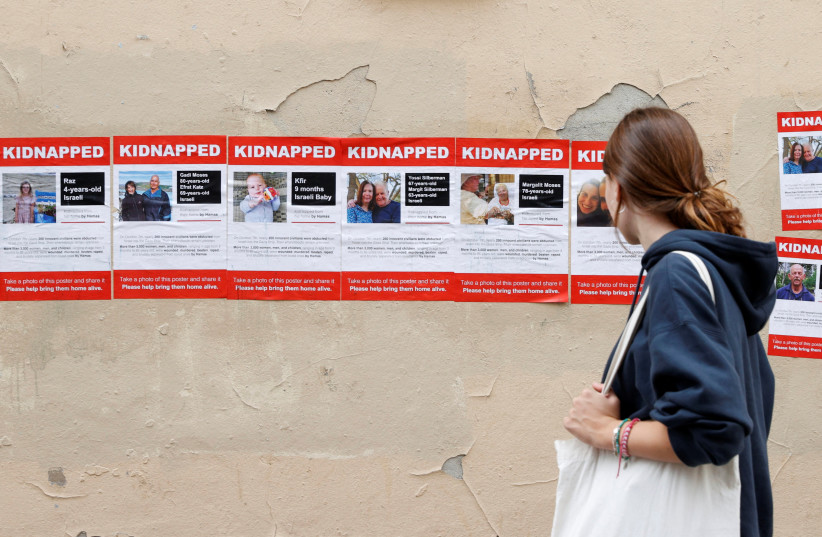Good progress has been made on efforts to secure the release of hostages, Qatari Prime Minister Mohammed bin Abdulrahman bin Jassim Al-Thani told reporters in Doha on Sunday morning.
“I am now more confident that we are close to a deal that can bring the people safely back to their homes,” he said.
He spoke in the aftermath of a Washington Post report about the details of a deal by which 50 female and child hostages would be freed in exchange for the Israeli release of 50 Palestinian women and minors jailed on security-related offenses.
As part of that deal, Israel would agree to a five-day ceasefire, during which time the hostages would be released in small groups.
The Qatari premier said that “efforts for a deal are still ongoing” during a joint press conference he held with European Union foreign policy chief Josep Borrell.

“It’s counterproductive to see leaks coming out before sealing a deal, which has been going through ups and downs throughout the last few weeks,” Al-Thani said.
He acknowledged however that such an agreement could be close to execution.
“When you come closer to the goal, your confidence levels are increasing; the sticking points are more practical, logistical, not something that represents the core of the deal," he said.
'We see good progress in the last few days'
“The efforts are still ongoing, and we communicate with both parties, with the Israelis and with Hamas. We see good progress in the last few days,” he said.
The Qatari premier added that it was also important to ensure humanitarian assistance to Gaza.
“We see the people are suffering from starvation; people are lacking power, clean water, sanitation; the hospital is lacking fuel," he said. "These are the most important things; they should not be relevant to the deal, but if the deal is going to facilitate that, then we hope it happens as soon as possible."
Al-Thani spoke on the 44th day since Hamas infiltrated southern Israel on October 7, killing over 1,200 people and seizing over 239 hostages. Israel responded with a military campaign to oust Hamas from the Gaza Strip, which it has forcibly ruled since 2007. Hamas has asserted that over 11,000 Palestinians have been killed recently in Gaza in war-related violence.
Borrell in Doha acknowledged that what Hamas did on October 7 was the largest massacre of Jews since the Holocaust. But he said, the IDF’s military campaign has created a humanitarian catastrophe in Gaza. “One horror doesn’t justify another horror,” Borrell stated.
He called for the immediate release of the hostages and for the implementation of last week’s United Nations Security Council resolution calling for prolonged humanitarian pauses.
“The number of casualties, the number of children, makes us believe that much more should be done [by Israel] to preserve the life of civilians,” he said.
Borrell called on Israel to also allow more humanitarian assistance, but noted that this was equivalent to treating the symptom not and not the disease.
It doesn’t make sense to give someone dinner and then kill them the next day, Borrell said, as he called for the implementation of the two-state resolution to the conflict as the best way to ensure peace.
“I am very much aware that this will require a great effort, not only economically, but a political investment; not [only] to build houses but to build a state.
The best way to honor the victims is to take steps to ensure that an attack such as the one that occurred on October 7 never happens again, he said.
